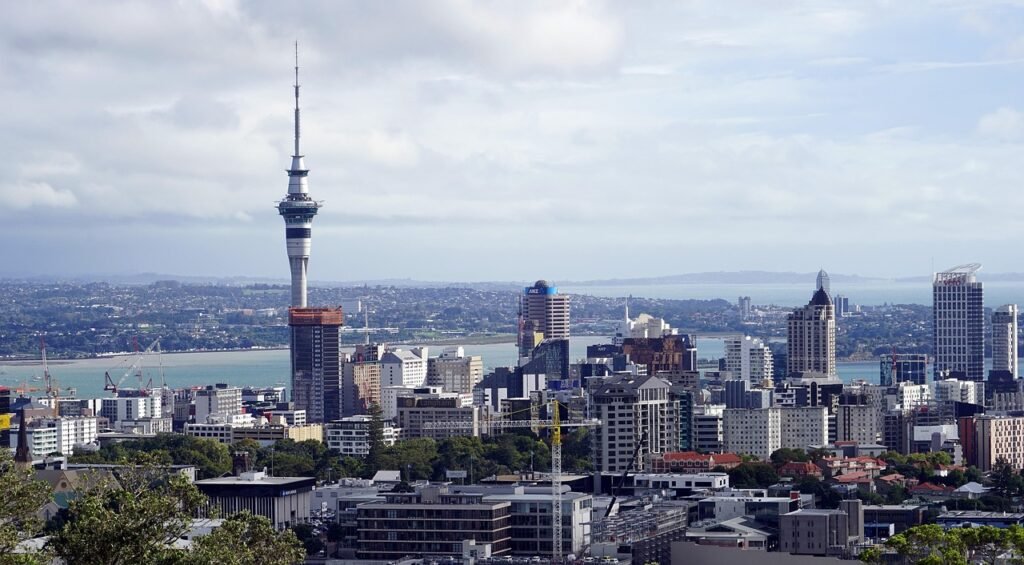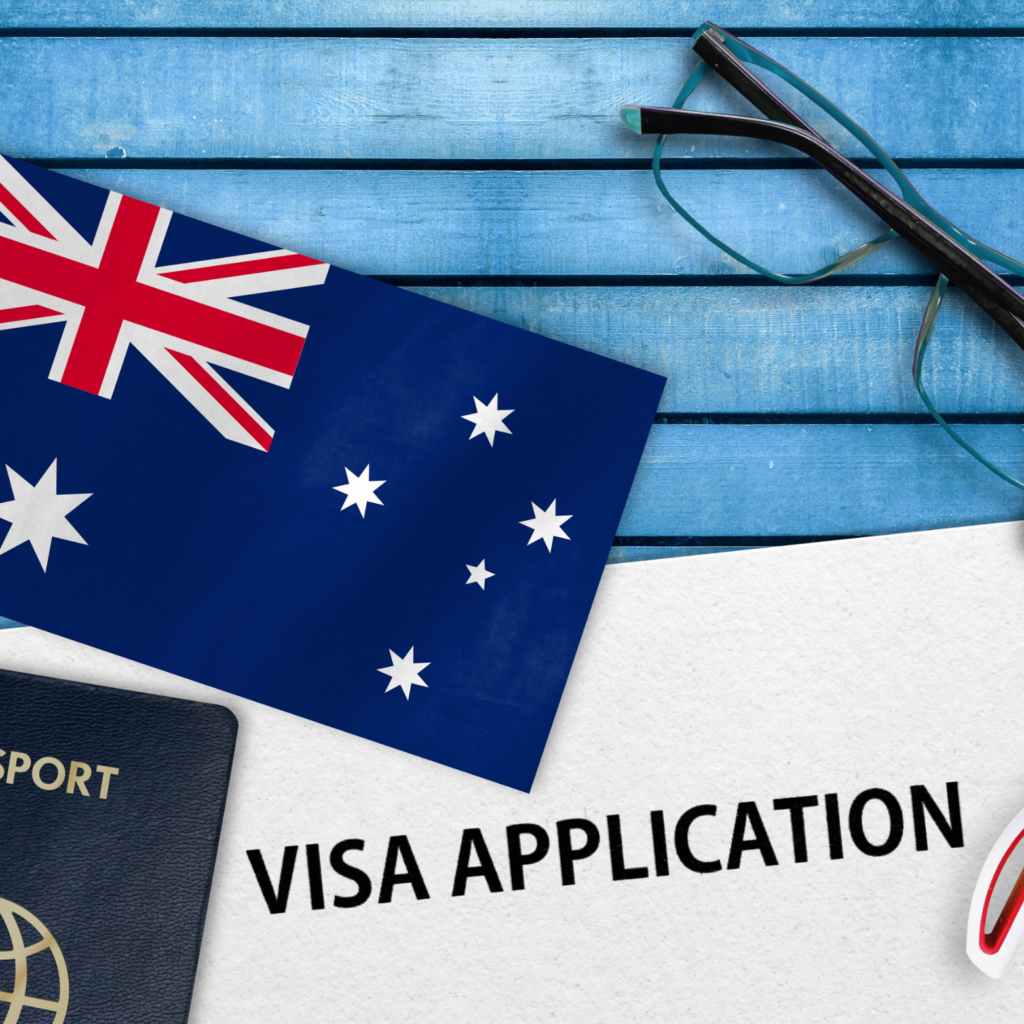Explore the Colourful Country
Study in New Zealand
Why New Zealand?
New Zealand offers world-class education with globally ranked universities known for research excellence and innovation. The country provides a safe, welcoming, and multicultural environment for international students. With flexible post-study work and PR pathways, graduates have strong career opportunities. Stunning natural beauty and a high quality of life make New Zealand an ideal study destination.

- Study in
New Zealand
Explore Study Programs
Schooling
Schooling Options in New Zealand for Bangladeshi Students
State (Public) Schools
Funded by the New Zealand government.
International students (including Bangladeshi children) pay tuition fees.
Offer a high standard of education from Year 1 (age 5) to Year 13 (age 17/18).
Provide NCEA (National Certificate of Educational Achievement), New Zealand’s main secondary school qualification.
State-Integrated Schools
Publicly funded but have a special character (e.g., religious or philosophical values like Catholic, Anglican).
Follow the national curriculum but with added cultural or faith-based components.
Private (Independent) Schools
Privately funded and charge higher tuition fees.
Often offer international programs (e.g., International Baccalaureate (IB) or Cambridge curriculum).
Smaller class sizes and broader extracurricular opportunities.
Boarding Schools
Many private schools offer boarding (accommodation + meals + supervision).
Suitable for older students, typically in secondary years (Year 9 and above).
English Language (ESOL) Programs
Some schools provide intensive English language support for non-native speakers to help them integrate into the mainstream classes.
Visa for Schooling
- Fee Paying Student Visa (no subclass number) is required for Bangladeshi students to attend school in New Zealand.
- Parents can explore options like Visitor Visa (for short stays) or Guardian Visa if they wish to accompany younger children.
Diploma Courses (Job-Ready Programs)
Ideal for students looking to gain hands-on skills and enter the workforce quickly.
Diploma in Nursing
Diploma in Early Childhood Education
Diploma in Hospitality Management
Diploma in Information Technology
Diploma in Applied Business
Diploma in Automotive Engineering
Diploma in Construction and Quantity Surveying
These programs usually range from 1 to 2 years and are aligned with New Zealand’s skill shortage areas, often leading to job-ready roles with pathways to work visas and long-term stay options.
Undergraduate Degrees (Bachelor Programs)
Perfect for students aiming to build strong academic foundations and long-term career opportunities.
Bachelor of Nursing
Bachelor of Information Technology / Computer Science
Bachelor of Engineering (Civil, Mechanical, Electrical, etc.)
Bachelor of Business / Accounting / Finance
Bachelor of Education (Early Childhood, Primary)
Bachelor of Social Work
Bachelor of Environmental Management / Science
Many of these programs align with New Zealand’s skill shortage areas and can lead to post-study work opportunities and skilled migration pathways.
Postgraduate Degrees (Master’s Programs)
Designed for students seeking to specialize or transition into high-demand career fields.
Master of Information Technology
Master of Data Science / Cybersecurity
Master of Nursing / Public Health
Master of Engineering / Engineering Management
Master of Professional Accounting (MPA)
Master of Social Work
Master of Education
Master of Business Administration (MBA) – with specializations in HR, Project Management, International Business
Postgraduate qualifications in New Zealand are highly valued and often linked to skill shortage areas, offering better post-study work rights and pathways toward skilled migration.
PhD / Doctoral Studies (Research Programs)
Ideal for students pursuing careers in research, academia, or high-level industry positions.
PhD in Information Technology / Computer Science
PhD in Engineering (Civil, Mechanical, Electrical, etc.)
PhD in Health Sciences / Biomedical Research
PhD in Business / Economics / Management
PhD in Environmental Science / Climate Studies
PhD in Education / Social Sciences
Why consider a PhD in New Zealand?
International PhD students often pay the same tuition fees as domestic students.
Many universities offer full or partial scholarships for research students.
Strong focus on independent research and access to leading academics.
Offers pathways to Post-Study Work Visa and potential residency through skilled migration.
Opportunity to contribute to globally relevant research and innovation.


- Study in
New Zealand
Step-by-Step Guide
Step-1: Explore universities and courses
You can begin your journey by exploring top-ranked New Zealand universities and institutes, known for their quality education and student support. It’s essential to choose programs that match your academic background and long-term career goals. At Edex Global Nexus, we offer expert guidance to help you shortlist the most suitable courses based on your interests, current job market demand in New Zealand, and potential pathways to permanent residency (PR).
Step-2: Check eligibility
To study in New Zealand as an international student, you must meet specific academic and English language requirements depending on your level of study—Diploma, Undergraduate, or Postgraduate. Eligibility criteria can vary slightly between institutions and programs, so it’s important to check these carefully before applying to ensure a smooth admission process.
Eligibility Checklist:
Academic qualifications equivalent to New Zealand NCEA Level 2, Level 3, or a recognized Bachelor’s degree
English language proficiency (e.g., IELTS, TOEFL, or PTE) as required by the institution
Minimum GPA or grade point average as specified by your chosen program
Course-specific prerequisites (such as mathematics, sciences, or related subjects)
Valid passport and personal identification documents
Relevant work experience (required for some postgraduate courses)
Portfolio or audition (for creative, design, and performing arts programs)
Genuine Temporary Entrant (GTE) requirement compliance to meet visa eligibility
Step-3: Available scholarships
New Zealand offers a variety of scholarships for international students, including attractive options for Bangladeshi applicants. These scholarships can help reduce tuition fees and living costs, making your study experience more accessible and rewarding.
Popular Scholarships:
New Zealand International Scholarships (NZIS)
Fully funded by the New Zealand Government, this scholarship supports students from developing countries, including Bangladesh. It covers tuition fees, living allowances, travel costs, and health insurance. Highly competitive.Prime Minister’s Scholarships for Asia
Designed to strengthen ties between New Zealand and Asian countries, this scholarship offers financial support for both undergraduate and postgraduate students.University-Specific Scholarships
Many New Zealand universities provide merit-based scholarships for international students.
Examples include:University of Auckland International Student Excellence Scholarship
Victoria University of Wellington International Excellence Scholarship
University of Otago International Doctoral Scholarship
Eligibility Highlights:
Strong academic record and GPA
English language proficiency (IELTS, TOEFL, or equivalent)
Some scholarships may require leadership skills, community involvement, or a research proposal
Step-4: Recieve and accept offer
Understand your offer letter – Learn the difference between a conditional and unconditional offer. A conditional offer means you still need to meet certain requirements; an unconditional offer confirms your admission.
Fulfill any conditions efficiently – Provide pending documents, final academic results, or English test scores quickly to secure your unconditional offer.
Get assistance with tuition deposit and Offer of Place – We guide you through the tuition fee payment process and help you obtain your official Offer of Place, which is essential for your New Zealand student visa application.
Step-5: Get Health and Travel Insurance
Guidance on choosing the right insurance – We help you understand and select a suitable international student insurance policy that meets New Zealand visa requirements.
Compare providers for cost and coverage – Get assistance in comparing different insurance options to find the best value with comprehensive medical and travel coverage.
Ensure insurance is visa-compliant – We make sure your insurance policy is valid for the entire duration of your stay and correctly documented for your student visa application.
Step-6: Apply for student visa
Complete the visa application with expert support – We guide you through each step of the New Zealand student visa process, ensuring accuracy and compliance with Immigration New Zealand (INZ) requirements.
Prepare and review all required documents – Get assistance with organizing key documents such as your Offer of Place, financial evidence, medical and police certificates, and Statement of Purpose.
Mock interviews and visa readiness checks – Be fully prepared with mock interviews (if required) and final document checks to improve your chances of visa approval.
Step-7: Financial and travel preparation
Checklist for financial documents – We provide a detailed list of required documents such as bank statements, sponsorship letters, and financial capacity proof to meet New Zealand visa requirements.
Tips for affordable flight bookings – Receive guidance on booking budget-friendly flights and planning your travel at the right time to save costs.
Help with accommodation and airport pickup – Support in securing suitable student accommodation and arranging airport pickup services, if available through your institution or partners.
Step-8: Arrive and settle in New Zealand
Pre-departure briefing and student handbook – Receive helpful advice and a comprehensive handbook to prepare for life in New Zealand before your departure.
Help with SIM card, bank account & IRD number – We assist you in setting up essentials like a local SIM card, a New Zealand bank account, and your Inland Revenue Department (IRD) number for work and tax purposes.
Orientation and ongoing support – Take part in university or institution-led orientation sessions and get connected with student support services to help you adapt and thrive in your new environment.


- Study in
New Zealand
Explore Our Partner Universities
Auckland Institute of Studies
Christchurch City College
Crimson Global Academy
Future Skills
Academy Limited
Le Cordon Blue New Zealand
Massey University
New Zealand Skills and Education Group
Otago Polytechnic, Auckland
- University of Canterbury
- University of Waikato
- Victoria University of Wellington
- Western Institute of Technology at Taranaki (WITT)
- Whitecliffe – Christchurch Campus
- Whitecliffe – Symonds Street Campus
- Whitecliffe – Wellington Campus
- Whitecliffe Manukau Campus
- Whitireia New Zealand
- Wintec – New Zealand Institute of Skills and Technology

- Study in
New Zealand
Average Tuition Fees (Per Year)
- Bachelor’s degree – NZD 22,000 – NZD 32,000 per year
- Master’s degree – NZD 26,000 – NZD 40,000 per year
- PhD – NZD 6,500 – NZD 10,000 per year (same as domestic fees for most international PhD students)
Eligibility Criteria
Academic credentials – Completion of high school, bachelor’s degree, or master’s degree relevant to your chosen program.
Required documents – Valid passport, student visa application, Statement of Purpose (SOP), Letters of Recommendation (LOR), and other supporting documents as requested.
Language proficiency – English test scores such as IELTS, TOEFL, PTE Academic, or Duolingo English Test, meeting the specific program requirements.
Additional tests – Some programs may require GMAT, GRE, or portfolio submissions, depending on the field of study.
Test Score Requirements
GRE – Typically 310–320 (required for some postgraduate and research programs)
GMAT – Generally 650+ (for business and management courses)
IELTS – Overall 6.5–7.0 with no band below 6.0 (varies by institution and program)
TOEFL iBT – Minimum 90+, with balanced scores across sections

Job and PR Pathways After Study
New Zealand offers strong post-study work opportunities for international graduates, especially in areas facing skill shortages. With the right guidance, you can transition smoothly from your student visa to work and eventually permanent residency.
Post-Study Work Visa – We support you in applying for the Post-Study Work Visa, which allows you to live and work in New Zealand for up to 1–3 years depending on your qualification level.
In-demand skilled occupations – Get detailed information about New Zealand’s Long Term Skill Shortage List (LTSSL) and Essential Skills in Demand lists, helping you target jobs with better employment and residency prospects.
Career workshops and job readiness – Benefit from workshops focused on CV building, interview preparation, and understanding the New Zealand job market culture.
Skilled migration and PR planning – Receive personalized advice on navigating New Zealand’s skilled migrant visa pathways, including points-based systems and employer sponsorship options aligned with your skills and qualifications.
Our Support During the Process
We’re with you every step of the way—from your initial consultation to settling into New Zealand life and beyond. Our aim is to make your study abroad experience smooth, informed, and successful.
Personalized consultation at every step – We carefully assess your academic goals, financial situation, and personal preferences to help you choose the best study and career pathways.
One-on-one support for admission, visa & travel – Receive dedicated assistance with university applications, document preparation, visa processing, and travel arrangements.
Always accessible—call, WhatsApp, or in person – Our friendly advisors are available via your preferred communication channel whenever you need guidance or answers.
Regular updates, reminders & document reviews – We keep you informed with timely updates, important reminders, and detailed document checks to ensure you never miss a deadline.
Post-arrival check-ins & alumni mentoring – After you arrive, we continue to support you, including connecting you with experienced alumni who can share valuable insights.
Ongoing support for job search and PR planning – We help you navigate job hunting, CV preparation, interview skills, and long-term residency pathways even after you graduate.
Visa Categories for Study in New Zealand

Fee Paying Student Visa
For full-time study at a New Zealand school, university, or other approved education provider.

Exchange Student Visa
For students participating in an approved exchange program

Pathway Student Visa
Allows students to study up to 3 consecutive programs on a single visa, useful for progressing from language to diploma/degree study.

Scholarship Student Visa
For recipients of certain New Zealand government or recognized scholarships.

Dependent Child Student Visa
For school-aged children of eligible work or student visa holders to study at primary or secondary school.

Visa Application Checklist
Personal & Identification Documents
- Valid Passport: Must be valid for at least 6 months beyond your intended stay.
- National ID Card (NID): If applicable.
- Passport-sized Photographs: Recent photos meeting visa specifications.
- Marriage or Divorce Certificate: If applicable, to verify marital status.
Academic & English Language Proficiency
- Academic Certificates & Transcripts: Including degrees, diplomas, and relevant qualifications.
- Letters of Recommendation: From academic or professional referees.
- Curriculum Vitae (CV)/Resume: Detailing academic and work history.
- Portfolio: Required for courses in creative fields like design or architecture.
- English Language Test Results: Valid scores from accepted tests such as IELTS, TOEFL iBT, PTE Academic, CAE, or OET.
Course Enrollment & Intent
- Academic Certificates & Transcripts: Including degrees, diplomas, and relevant qualifications.
- Letters of Recommendation: From academic or professional referees.
- Curriculum Vitae (CV)/Resume: Detailing academic and work history.
- Portfolio: Required for courses in creative fields like design or architecture.
- English Language Test Results: Valid scores from accepted tests such as IELTS, TOEFL iBT, PTE Academic, CAE, or OET.
Financial Evidence
- Proof of Financial Capacity: Demonstrating access to at least AUD 29,710 to cover tuition, living expenses, and travel.
- Bank Statements: Recent statements showing sufficient funds.
- Fixed Deposits (FDRs) or Deposit Pension Schemes (DPS): If applicable.
- Sponsorship Letter: If someone else is funding your studies, include a letter detailing the sponsorship.
Health & Character Requirements
- Overseas Student Health Cover (OSHC): Mandatory health insurance for the duration of your stay.
- Tuberculosis (TB) Test Results: If required based on your country of residence.
- Police Clearance Certificate: To demonstrate good character.
For Applicants Under 18
- Parental Consent Form: Completed by parents or legal guardians.
- Custody Documents: If applicable, provide evidence of sole custody or guardianship.
Visa Application Process
- Biometric Information: Schedule an appointment with VFS Global for biometrics and document submission.
- Travel Itinerary: Outline of your planned travel dates and arrangements.
- Visa Application Submission: Apply online through ImmiAccount.
- Visa Application Fee: NZD 430 as of June 1, 2025.
Processing Times
- Standard Processing: Approximately ~10 weeks average.
- Priority Processing: Approximately 5–7 weeks, depending on individual circumstances.

